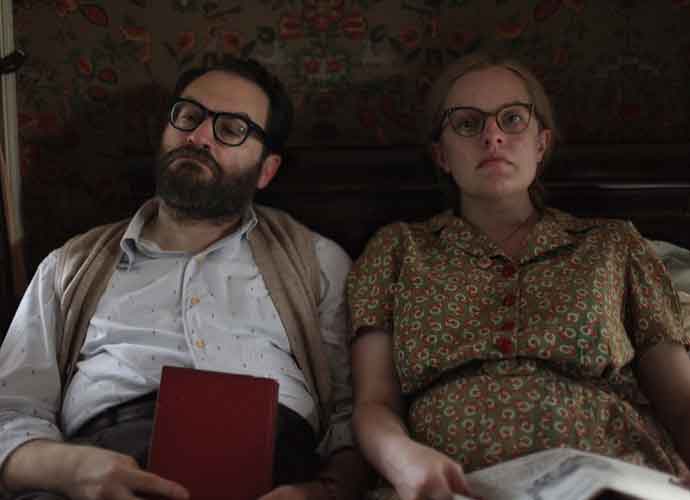‘Shirley’ Movie Review: Elisabeth Moss & Michael Stuhlbarg Elevate Hallucinatory Genre-Bender

4/5
If ever a movie has resisted the star rating system, surely it’s Shirley. Indie taskmaster Josephine Decker has crafted a seemingly simple film that, when closely observed, brims with moving parts — all adding up to something incredibly difficult to pin down but enthralling to watch all the same.
The film is ostensibly a fictional episode in the life of famed horror writer Shirley Jackson (Elisabeth Moss) and her husband Stanley Hyman (Michael Stuhlbarg) as the latter takes in a young man and his wife in order to lighten his load teaching at the local college. The young man, played by acceptably by Logan Lerman, doesn’t figure much into the overall arc of the movie; it’s his wife Rose (Odessa Young) that Decker fixes her lens on.
Rose, like so much of the film, resists easy summation: she is, on the outside, a reasonably cookie-cutter mid-20th century housewife, but her fascination with Jackson’s disturbing tales and the author’s fragile mental state suggests something much deeper going on underneath. Young plays the role somewhat heavily, chewing on the faux accent perhaps a bit too hard, but Rose still functions as an interesting figure to enter Jackson’s world through.
And what a world it is. Without giving too much of the film’s numerous twists and turns away, Jackson’s relationship with her husband is far from simple, appearing antagonistic, abusive, affectionate and mutually beneficial all at different moments. Considered as a whole, Shirley and Stanley are one of the best cinematic couples I’ve ever seen onscreen, both in terms of writing as well as performance.
Moss plays Jackson with simply too many airs to name here, but her particular ability to combine vulnerability with menace is an absolute delight to watch. She would absolutely steal the show if it weren’t for the ever-fantastic efforts of Stuhlbarg, a great actor firing on all cylinders here. His charisma is equal parts infectious and off-putting; he is at once a totally unique character and yet a figure I feel I’ve known many times before.
The interplay between Rose, Shirley and Stanley forms the core of what makes this film great: Shirley wants to write, Rose’s presence both helps and hinders this, and the true nature of Stanley’s role in his wife’s creative process is almost impossible to state definitively. It’s particularly disappointing, then, that the movie spends so much time near the end on Rose and her relationship with her husband — not because these scenes aren’t done well but because they’re fantastically by-the-numbers compared to so much of what came before it.
Shirley‘s final chapter, as a whole, leaves a lot to be desired. Rose’s character goes from being a multi prism of female subjectivity to a discontented wife and mother, and Rose and Stanley’s dynamic begins to feel a lot less fresh; Who’s Afraid of Virginia Woolf? and Phantom Thread both seem like clear points of reference for this point in the film — unfortunately not in a wholly positive way.
Somehow, though, the film still managed to leave a powerful impression on me. Perhaps it was Sturla Brandth Grøvlen‘s incomparable cinematography that allows each move of the camera a certain weight behind it that most movies today simply don’t possess. Or maybe it was Tamar-kali‘s chilling score that takes sonic minimalism to new cinematic heights.
Whatever the cocktail of reasons why ends up being, Shirley is undoubtedly a must-watch movie. Decker has created a real poem of a film that demands a lot of its viewer. Thankfully, it gives even more in return.
RELATED ARTICLES
Get the most-revealing celebrity conversations with the uInterview podcast!





Leave a comment